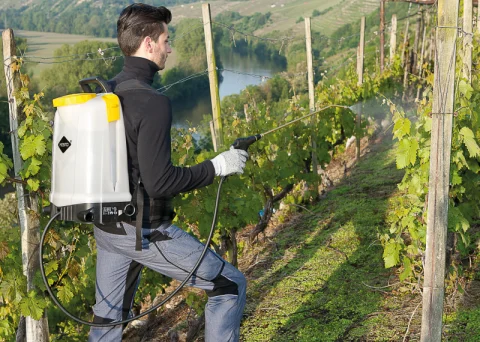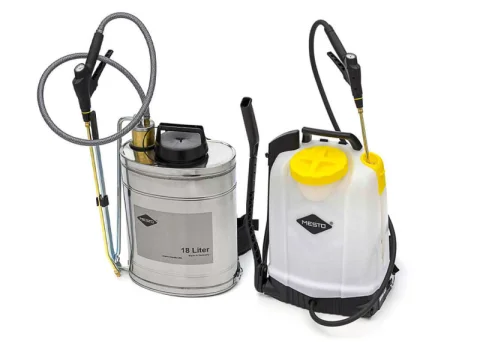Glyphosate Free Weedkiller
Glyphosate is the most common and popular chemical weed killing ingredient around the world. It is a non-selective herbicide which is particularly effective against perennial weeds. Glyphosate works effectively when applied to the leaves of selected plants, it is then absorbed into the plant structure and spreads around the plant and into the root system to prevent the production of proteins that are necessary for the plants growth. This does not initially stop seeds from germinating but does result in the death of the selected plant.
As glyphosate use is so widespread it can be found in many foods, at a non-toxic level, therefore it is not something to be frightened of in small quantities. However, when used at a high dosage such as with weedkiller, it can cause irritation. Whilst it cannot penetrate through the skin alone, it can causes pain and itchiness when in contact with the eyes and skin. When used in a spray form, the mist can be inhaled, resulting in possible irritation within the nose and throat, therefore it is advised to wear a mask and gloves if using a large amount, and rinsing hands after use.
Glyphosate is a very practical option for non-professionals as it provides a broad spectrum of weed control. This one chemical can take control for a large range of weed issues and is a relatively inexpensive option in comparison to other herbicides. It is also known for its low persistence. Some herbicides can last for years as they continue to effect surrounding plant health after the initial application, but glyphosate immediately breaks down into non-toxic substances. However, one known weakness of using glyphosate frequently is that the plant can start to build resistance meaning that the product can become less effective.
An issue for those concerned with the overall health of their garden is that glyphosate can produce toxicity in surrounding soil and water due to its non-selective properties. As the product binds to soil, it can persist for up to six months depending on the climate, then it is eventually broken down by bacteria in the soil. This means that some glyphosate products may be toxic to fish and wildlife in the area. It can also affect them indirectly as the absence of the plants which it kills alters their surrounding habitat. It is for this reason that we have non-glyphosate weed killers within our range as they are safer for the environment but will still do the job that you want.
As glyphosate is non selective it will cause damage or death of other surrounding plants, so it is crucial to apply directly to the leaves and to watch out for herbicide drift. Applying any form of weed killer on a windless day is advised so that it is less likely to spread to other plant leaves. Our non-glyphosate options work on contact application so surrounding plants are less likely to be affected.
As more people are recognising the concern surrounding the safety of glyphosate weed killers, there is increased popularity for glyphosate free options. Using alternatives such as our non-glyphosate weedkiller allows a safer option for households with pets or children around. Long-term exposure can take a toll on your own health and safety too, as studies show that glyphosate can increase your risk of cancer, kidney damage, and many others. Therefore a glyphosate free alternative is advised or at least should be a consideration for all.




Related Articles
How soon after applying glyphosate weedkiller can I seed new grass or add new plants?
Glyphosate does not move once applied, so generally, it doesn't affect untreated plants, such as nearby flowers. In soil, glyphosate usually breaks down within a few days so it becomes unavailable to plants that are planted later on. We recommend to ...Do you offer free delivery on orders?
We don't offer free delivery or codes that can be used. The cost of shipping is relative to what we have to pay our courier, and in most cases is actually lower to be more affordable for you as a customer. Since these are chemicals and large ...The Ultimate Caravan Cleaning Guide: Moss Free Forever
Caravans are an incredible way to embrace the great outdoors, offering freedom, flexibility, and a home-away-from-home. But over time, unsightly moss, algae, and lichen creep in to the picture, especially on roofs, seals, awnings, and exterior ...How long after applying Depitox weedkiller for ragwort can I let my horses and livestock back on the paddock?
When using Depitox livestock must be kept out of treated areas for at least two weeks following treatment and until poisonous weeds such as ragwort have died and become unpalatable. Depitox is fantastic at controlling a wide range of annual or ...How To Remove Moss From a Flat Roof
Removing moss from a flat roof is a straightforward task that most homeowners can handle themselves, provided the roof is accessible and safety is prioritised throughout: If you're using a ladder to reach the roof, ensure it’s stable and placed on ...